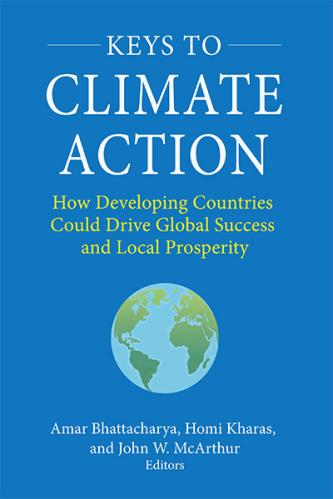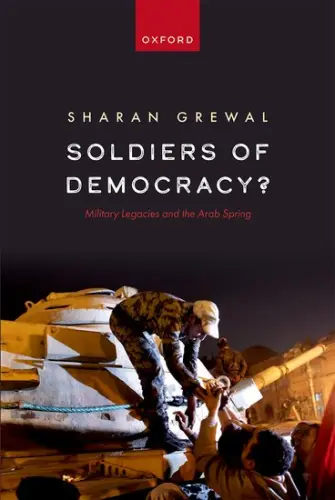Brookings experts continue to offer analysis and commentary on the violence in Egypt. Here’s what they are saying since the Egyptian military’s deadly crackdown on Islamist supporters of deposed President Mohamed Morsi on August 14:
Shibley Telhami asks how did Egypt turn so dark? Follow @ShibleyTelhami
It was easy enough to use public disenchantment with Morsi and the muscle of the military to gain power. But in an era of heightened expectations and free-flowing information, a Mubarak-style regime cannot return. It is now impossible to govern Egypt by repressing the Brotherhood and its supporters, who have become indispensable parts of an empowered citizenry.
Bruce Riedel says the Saudis “were shocked when [President] Obama abandoned Mubarak” in 2011 and are calling for outsiders, including the U.S., to stop interfering in Egyptian politics.
The Saudis don’t want an open break with Washington, so their critique is indirect. Riyadh still wants to work with Washington on Iran, al Qaeda, Israeli-Palestinian peace negotiations, and other issues. The Saudis value an alliance that dates back to 1945. But the alliance has always been based on shared threat assessments—not shared values. Whether the threat was the Soviet Union, Saddam Hussein, Shia Iran or al Qaeda, America and Saudi Arabia were partners. But for Riyadh the Arab awakening posed a new threat, a mortal challenge to the world’s last absolute monarchy, that America has been too slow to understand. Come to your senses, America, and back the [Egyptian] army, the king urges. Stick with autocracy.
Madiha Afzal says that democracy is effectively dead in Egypt.
But focusing on the US’s response to the attacks is a futile exercise. And the difference America could have made this week is likely only marginal. America has far less leverage with Egypt’s leaders and in its internal politics than the rest of the world imagines. Ultimately, the responsibility lies with Egypt to fix itself. And the country’s all-powerful military seems ruthless and unable to think through the absurdity of its actions, unable even to understand the simplest and oldest of adages: violence begets violence.
Omar Ashour explores potential scenarios for Egypt’s immediate future, drawing on lessons from Egypt in 1954, Algeria in the 1990s, civil war Spain of 1936, and Syria in 2011.
In general, when an elected institution gets removed by a group of generals, the outcome is unfavorable to democracy. There are a few exceptions to that pattern, such as the Turkey 1997 “post-modern” coup, which had some conditions: bloodless and marked by limited repression and quick inclusion of the ousted parties. This has not been the case in Egypt, with high protester death tolls.
Hafez Ghanem says that “It is too early to declare the defeat of Egypt’s democratic movement” but the escalating spiral of violence will make it difficult to put new democratic institutions in place.
Creating a Truth and Reconciliation Commission (modeled on the one set up by President Mandela and Bishop Tutu after the fall of apartheid in South Africa) could be one way of easing tensions. The objective of this commission would be to discover and reveal crimes perpetrated by all sides over the last two years and, by doing so, help achieve national reconciliation. More than 20 countries all around the world have followed the South African example and set up such commissions to deal with crises and transitional situations.
Bessma Momani sees no winners in an increasingly polarized society. Follow @b_momani
The ‘us versus them’ narrative propagated by both sides is becoming entrenched and what little middle ground was left after the coup has eroded. Egyptians are internalizing contrasting versions of what has happened to their country since Hosni Mubarak fell. And with each impassioned telling, reconciliation recedes further into the distance.
Cynthia Schneider says America is now the enemy in the eyes of both Egyptian Islamists and secularists. Follow @schneidercp
February 2011 may have been the last time the United States had influence over events in Egypt. If Obama had stayed true to the principles he once espoused in Cairo, Washington might have retained some of the trust it gained back then when it helped, however gingerly, push Mubarak from power. Instead, neither the military nor the Islamists nor the opposition heeds the United States. And as the heart of the Arab world is torn apart, America is missing in action.
Shadi Hamid says Egypt is headed to a worse place than the regime of Hosni Mubarak. Follow @ShadiHamid
The current military government is much more ambitious, with its aim to dismantle the Brotherhood and destroy it as a political force. Unlike Mubarak, the generals have tapped into real, popular anger against the Brotherhood – after its many failures in power – and helped nurture that anger into something ugly and visceral. It’s no surprise when armies use force. That’s what armies do. But it is scary to see ordinary Egyptians, “liberal” political parties and much of the country’s media class cheering it on so enthusiastically.



Commentary
Brookings Scholars on the Violence in Egypt
August 19, 2013